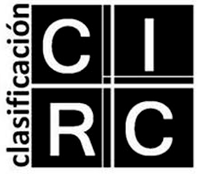
The Declaration on Research Assessment (DORA)
RiHC. International Journal of the History of Communication is committed to gender policies and actively works to ensure that equality between women and men is present in all of its actions—both in the writing of articles and in the journal’s management and participation processes.
Editorial composition and review
The journal shall ensure a balanced editorial composition in terms of gender, reflected in all governing bodies of the journal as well as among the individuals responsible for the evaluation of submitted manuscripts.
Use of inclusive language
RiHC. International Journal of the History of Communication encourages the use of inclusive language in academic articles. As far as possible, and without compromising the clarity and correctness of the text, the following strategies are recommended in order to avoid the use of generic masculine forms:
-
Use collective nouns that include all genders: student body (instead of male students), teaching staff (instead of male teachers), adolescents (instead of boys), leadership (instead of director).
-
Alternate generic nouns in place of generic masculine ones: those summoned or participants (instead of summoned men).
-
Replace adjectives with neutral expressions: are well qualified (instead of well prepared men).
-
Use periphrasis or explanatory phrases instead of the generic masculine: people born abroad (instead of foreigners).
-
Use relative pronouns such as who instead of those: those who completed the work (instead of the men who completed the work).
-
Omit direct reference to the subject: a study should be conducted (instead of researchers should conduct a study).
-
Use explanatory appositions that specify both sexes: a study on adolescents of all genders (instead of a study on boys).
The use of the masculine as a generic form should only be retained in the following cases:
-
Literal quotations (i.e., quotations of fewer than 40 words incorporated within the text using quotation marks, or quotations longer than 40 words, presented in italics, without quotation marks, and indented one centimeter from both the left and right margins).
-
Transcriptions of interviews and focus groups, in which the original speaker’s voice is preserved.
Authors are advised to avoid assumptions derived from gender stereotypes regarding individuals, their abilities, attitudes, and relationships.












